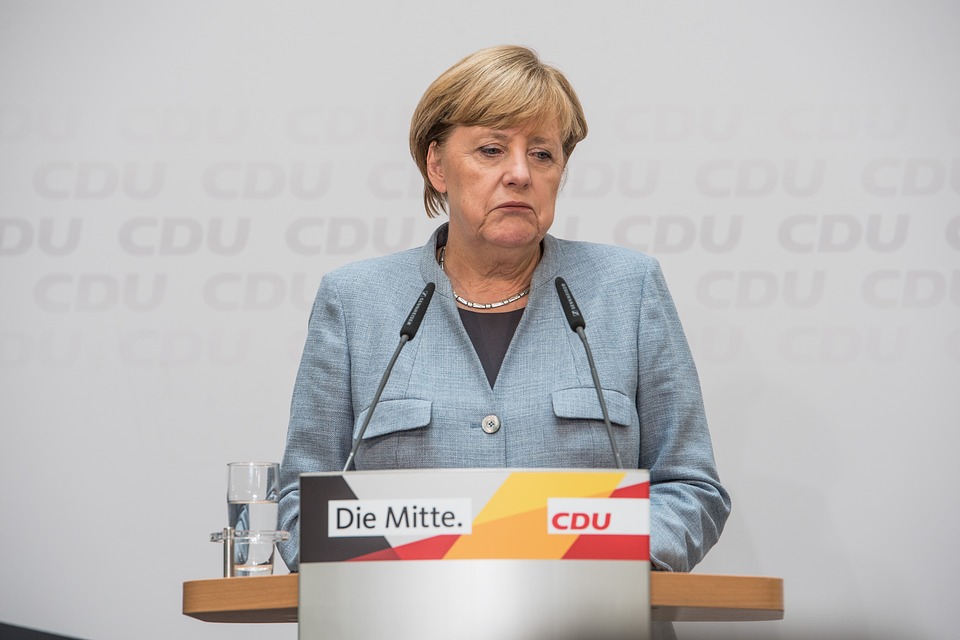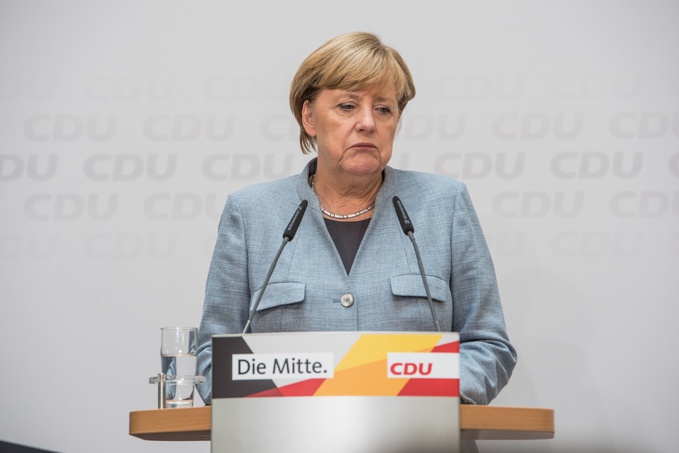The elections in Hesse, the central land of Germany, have always attracted everyone’s attention, and one of the reasons for this is that the land hosts the financial capital of Germany, Frankfurt. It is not surprising that after the new setback, there was again talks of weakness of the ruling coalition, that it wouldn’t last long and that after the early elections, Frau Merkel would be forced to resign from the Federal Chancellor position.
Formally, the Christian Democrats won because they gained 28%, but in fact this victory can be considered Pyrrhic. Firstly, this is the worst result of CDU over the past half century, and secondly, it is 10% lower than the result shown by the party of Ms. Merkel in 2013.
Nevertheless, Berlin is trying to pass these results off as victory, because a coalition of Christian Democrats, Social Democrats and Greens, if the latter agree to join, can get a majority in the Landtag.
In this case, it is likely that Volker Bouffier will become Merkel’s Premier. A real sensation is brewing here, since, as reported with reference to the source of the PICTURE publication, the very same Angela Merkel intends to be the leader of her party. In this case, Bouffier 's vote could help to the candidate she would support.
The Social Democrats, the CDU's allies in the Grand Coalition, also performed poorly as they only gathered 20% of the vote. The SPD nearly lost second place to Greens and showed the worst result in 70 years.
For Angela Merkel, the weak result of the Social Democrats is another bad news and a serious problem, because the pressure on the SPD leader Andrea Nahles will now rise sharply and may force her to leave the coalition. This will also mean early elections and, it is possible, departure of Ms. Merkel from the post of head of the federal government.
Nahles has already promised to make major changes in her party and in the Christian Democrats party to deal with their internal problems. Fears for the fate of the ruling coalition are quite serious if we recall that quite recently CDU/CSU suffered the same defeat in Bavaria, where the Christian socialists of Horst Seehofer ruled for many years. Failures in the two most important elections in a row protect the power of discontent of the German voters with the policies pursued by the federal government. By the way, Christian Democrats won 38.3% of the vote five years ago in the elections in Hesse, and the Social Democrats gathered 30.7%.
On Monday morning, Angela Merkel’s reaction to the election results in Hesse was not yet published, but CDU General Secretary Annegret Kramp-Karrenbauer called the losses incurred by the party “painful” and immediately congratulated Bouffier on saving the coalition.
Just as in Bavaria three weeks ago, the Greens can be considered the main winner of the election, who doubled the result - 19.5% at the expense of CDU and SPD. The result in Hesse is evidence that the successes of the Greens in other lands are not accidental.
Just as in Bavaria, a strong economy and low unemployment in Hesse did not prevent the Hessian voters from turning to the right. The ultra-right Alternative for Germany (AfD) also added significantly. It took fourth place with 12% and easily entered the Landtag of Hesse, by the way, for the first time in its short history. Thus, the “alternatives” can now be found in the parliaments of all 16 lands of the Federal Republic of Germany.
Even free democrats (FDP) overcame the threshold of 5% and entered the Landtag. The left-wing ultra-left party, which has 6.5%, will remain in the land parliament.
source: theguardian.com, dw.de
Formally, the Christian Democrats won because they gained 28%, but in fact this victory can be considered Pyrrhic. Firstly, this is the worst result of CDU over the past half century, and secondly, it is 10% lower than the result shown by the party of Ms. Merkel in 2013.
Nevertheless, Berlin is trying to pass these results off as victory, because a coalition of Christian Democrats, Social Democrats and Greens, if the latter agree to join, can get a majority in the Landtag.
In this case, it is likely that Volker Bouffier will become Merkel’s Premier. A real sensation is brewing here, since, as reported with reference to the source of the PICTURE publication, the very same Angela Merkel intends to be the leader of her party. In this case, Bouffier 's vote could help to the candidate she would support.
The Social Democrats, the CDU's allies in the Grand Coalition, also performed poorly as they only gathered 20% of the vote. The SPD nearly lost second place to Greens and showed the worst result in 70 years.
For Angela Merkel, the weak result of the Social Democrats is another bad news and a serious problem, because the pressure on the SPD leader Andrea Nahles will now rise sharply and may force her to leave the coalition. This will also mean early elections and, it is possible, departure of Ms. Merkel from the post of head of the federal government.
Nahles has already promised to make major changes in her party and in the Christian Democrats party to deal with their internal problems. Fears for the fate of the ruling coalition are quite serious if we recall that quite recently CDU/CSU suffered the same defeat in Bavaria, where the Christian socialists of Horst Seehofer ruled for many years. Failures in the two most important elections in a row protect the power of discontent of the German voters with the policies pursued by the federal government. By the way, Christian Democrats won 38.3% of the vote five years ago in the elections in Hesse, and the Social Democrats gathered 30.7%.
On Monday morning, Angela Merkel’s reaction to the election results in Hesse was not yet published, but CDU General Secretary Annegret Kramp-Karrenbauer called the losses incurred by the party “painful” and immediately congratulated Bouffier on saving the coalition.
Just as in Bavaria three weeks ago, the Greens can be considered the main winner of the election, who doubled the result - 19.5% at the expense of CDU and SPD. The result in Hesse is evidence that the successes of the Greens in other lands are not accidental.
Just as in Bavaria, a strong economy and low unemployment in Hesse did not prevent the Hessian voters from turning to the right. The ultra-right Alternative for Germany (AfD) also added significantly. It took fourth place with 12% and easily entered the Landtag of Hesse, by the way, for the first time in its short history. Thus, the “alternatives” can now be found in the parliaments of all 16 lands of the Federal Republic of Germany.
Even free democrats (FDP) overcame the threshold of 5% and entered the Landtag. The left-wing ultra-left party, which has 6.5%, will remain in the land parliament.
source: theguardian.com, dw.de



















